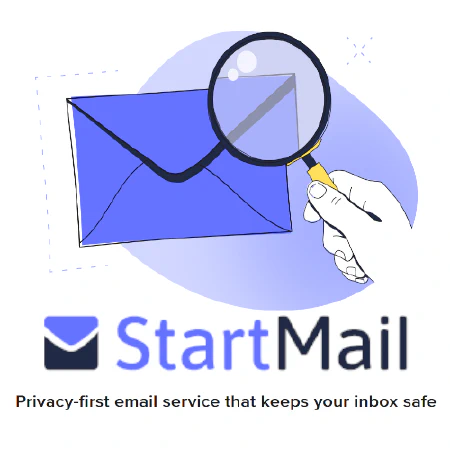Secure Cloud Solutions: AWS vs. Azure vs. Google Cloud Platform - Choosing the Best for Your Business

Table of Contents
Secure Cloud Solutions: AWS vs. Azure vs. Google Cloud Platform
In today’s digital age, businesses of all sizes rely on cloud solutions. Cloud platforms such as Amazon Web Services (AWS), Microsoft Azure, and Google Cloud Platform provide organizations with the scalability, flexibility, and cost-effectiveness needed to meet their changing business needs. While cloud computing offers a more efficient and modern approach, it also presents new security challenges.
Introduction to Cloud Security
Cloud security refers to the protection of a company’s data stored on cloud servers, applications, and platforms. As organizations rely more on cloud computing, cloud security becomes critical. In this article, we will discuss the security measures provided by AWS, Azure, and Google Cloud.
Cloud computing has revolutionized the way businesses operate. It has enabled companies to store and access data from anywhere in the world, collaborate on projects in real-time, and scale their operations quickly. However, with these benefits come new security risks that companies must address.
One of the biggest concerns with cloud computing is the possibility of data breaches. Hackers can gain access to a company’s sensitive information, such as financial data, intellectual property, and customer information. This can result in significant financial losses, damage to a company’s reputation, and legal repercussions.
Why Cloud Security Matters
Cloud security matters because it safeguards an organization’s data from unauthorized access, theft, or cyber-attacks. At present, malicious attacks on companies’ cloud systems are increasing.
Cloud security is not just about protecting data from external threats. It also involves ensuring that data is secure from internal threats, such as employee errors or malicious activity. Companies must implement strict access controls, monitor user activity, and have a disaster recovery plan in place.
Key Security Features to Consider
When choosing a cloud provider, one of the key factors to consider is the security features offered. Each cloud platform provides different security features, such as encryption, identity and access management, firewalls, and intrusion detection. Companies must evaluate their requirements to choose the best platform suited to their business model.
Encryption is a crucial security feature that encrypts data in transit and at rest. It ensures that data is only accessible by authorized users and cannot be intercepted by hackers. Identity and access management allows companies to control who has access to their data and what they can do with it. Firewalls protect against unauthorized access to a company’s network, while intrusion detection detects and responds to potential security threats.
In addition to these features, companies must also consider the cloud provider’s compliance with industry standards and regulations. For example, if a company is in the healthcare industry, they must ensure that their cloud provider is compliant with HIPAA regulations.
Overall, cloud security is a critical aspect of any organization’s IT infrastructure. Companies must choose a cloud provider that offers robust security features, complies with industry regulations, and has a proven track record of protecting their customers’ data.
Amazon Web Services (AWS) Security
AWS Security Overview
When it comes to cloud computing, security is a top priority. AWS security offers a range of features to protect customer data and applications. These features include secure access, firewalls, and encryption of data. AWS provides a secure and reliable environment for businesses to run their applications and store their data, without worrying about security breaches.
AWS also provides modular data isolation, data protection, and incident response features. These features allow businesses to customize their security settings and respond quickly to any security incidents that may occur.
Key AWS Security Features
AWS offers a wide range of security features to ensure the safety of customer data. Encryption is one of the key features offered by AWS. AWS provides encryption for data in transit and data at rest. This ensures that data is protected from unauthorized access and theft.
Identity access management is another important feature provided by AWS. This feature allows businesses to manage user access to resources and applications. AWS also provides security assessments to help businesses identify potential security risks and vulnerabilities.
Compliance is also a top priority for AWS. AWS holds several compliance certifications, including PCI DSS, HIPAA, and SOX. These certifications ensure that AWS meets the highest security standards and provides reliable security to businesses.
Threat detection is another important feature provided by AWS. AWS uses machine learning and artificial intelligence to detect potential security threats and respond quickly to any incidents that may occur.
AWS also provides control and visibility mechanisms, automatic security patching, DDOS protection, and fault tolerance features. These features ensure that businesses can operate in a secure and reliable environment, without worrying about security breaches or downtime.
AWS Compliance and Certifications
AWS has various worldwide security programs that have proven to provide reliable security to businesses. These programs include compliance with various regulations and certifications, such as GDPR, ISO 27001, and FedRAMP. AWS also provides compliance reports and certifications to help businesses meet their compliance requirements.
Microsoft Azure Security
Microsoft Azure is a cloud computing platform that provides businesses with a wide range of security features to protect their data and applications. With Azure, businesses can be assured that their data is safe and secure, as Microsoft has invested heavily in security measures to safeguard their customers’ data.
Azure Security Overview
Azure provides numerous security features, including antivirus, firewalls, and intrusion detection. These features are designed to protect businesses from a wide range of threats, including malware, viruses, and cyber-attacks. Businesses can also add more security measures by configuring Azure security features independently, giving them greater control over their security posture.
Other features provided by Azure are multi-factor authentication, alerting and auditing, and information protection. Multi-factor authentication is a security feature that requires users to provide two or more forms of authentication to access their accounts. This feature helps to prevent unauthorized access to sensitive data and applications. Alerting and auditing allows businesses to monitor their Azure environment for security events and take appropriate action when necessary. Information protection allows businesses to classify and label their data, ensuring that it is only accessed by authorized personnel.
Key Azure Security Features
Azure offers identity access management, encryption, firewalls, and threat protection. Identity access management is a security feature that controls access to Azure resources based on user roles and permissions. Encryption is a security feature that protects data by converting it into a code that can only be deciphered with a key. Firewalls are a security feature that blocks unauthorized access to Azure resources. Threat protection is a security feature that uses machine learning algorithms to detect and remediate security threats in real-time.
Azure also allows businesses to use their encryption keys, offers regulatory compliance, and machine learning-based threat detection and remediation. By using their encryption keys, businesses can ensure that their data is protected even if it is stolen. Regulatory compliance is a critical feature for businesses that operate in regulated industries, such as healthcare and finance. Azure provides various compliance and regulatory services to help businesses adapt to best practices.
Azure Compliance and Certifications
Azure complies with various worldwide standards such as HIPAA, ISO/IEC 27001, and SOC. These standards ensure that Azure meets the highest security and privacy standards. Besides, Azure provides various compliance and regulatory services to help businesses adapt to best practices. These services include compliance assessments, audit reports, and compliance documentation.
In conclusion, Microsoft Azure provides businesses with a wide range of security features to protect their data and applications. With Azure, businesses can be assured that their data is safe and secure, and that they are compliant with the latest security and privacy standards. Whether you are a small business or a large enterprise, Azure has the security features you need to protect your data and applications.
Google Cloud Platform Security
Google Cloud Security Overview
Google Cloud Platform provides several security features to keep data secure. Security measures include data encryption, security analytics, and network security. Also, Google Cloud enables customers to have granular control over security measures, such as network port control, filtered access, and intrusion detection.
Data encryption is a critical aspect of Google Cloud Platform security. Google Cloud Platform encrypts data at rest by default, using AES-256 encryption. Additionally, Google Cloud Platform supports customer-managed encryption keys, which allows customers to have full control over their data encryption keys.
Security analytics is another important security feature of Google Cloud Platform. Security analytics allows customers to monitor their infrastructure for potential security threats. Google Cloud Platform provides a range of tools for security analytics, including Cloud Security Command Center, which provides a centralized view of security across Google Cloud Platform services.
Network security is also a key aspect of Google Cloud Platform security. Google Cloud Platform provides a range of tools for network security, including Virtual Private Cloud (VPC), which allows customers to isolate their resources in a private network, and Cloud Load Balancing, which provides load balancing and DDoS protection.
Key Google Cloud Security Features
Google Cloud Platform offers cryptographic keys management, hardware security modules, security analytics, and security data protection. Other features include identity, network, and threat protection.
Cryptographic keys management is a critical aspect of Google Cloud Platform security. Google Cloud Platform provides a range of tools for cryptographic keys management, including Key Management Service (KMS), which allows customers to manage their encryption keys in the cloud. Additionally, Google Cloud Platform supports hardware security modules (HSMs), which provides an additional layer of security for cryptographic keys.
Identity protection is another important security feature of Google Cloud Platform. Google Cloud Platform provides a range of tools for identity protection, including Identity and Access Management (IAM), which allows customers to manage access to their resources in the cloud. Additionally, Google Cloud Platform supports multi-factor authentication (MFA), which provides an additional layer of security for user accounts.
Threat protection is also a key aspect of Google Cloud Platform security. Google Cloud Platform provides a range of tools for threat protection, including Cloud Armor, which provides protection against DDoS attacks, and Cloud IDS, which provides intrusion detection and prevention.
Google Cloud Compliance and Certifications
Google Cloud Platform complies with several international standards such as HIPAA, ISO/IEC 27001, SOC 2/3, and FISMA. Google’s dedicated compliance team constantly updates the platform to meet the latest compliance requirements.
HIPAA compliance is critical for healthcare organizations that store and process sensitive patient data. Google Cloud Platform provides a range of tools and services that are HIPAA compliant, including Google Cloud Healthcare API, which allows healthcare organizations to store and process patient data in the cloud.
ISO/IEC 27001 compliance is important for organizations that handle sensitive information. Google Cloud Platform is ISO/IEC 27001 certified, which means that Google Cloud Platform meets the highest standards for information security.
SOC 2/3 compliance is important for organizations that handle sensitive financial information. Google Cloud Platform is SOC 2/3 compliant, which means that Google Cloud Platform meets the highest standards for financial information security.
FISMA compliance is important for organizations that work with the US government. Google Cloud Platform is FISMA compliant, which means that Google Cloud Platform meets the highest standards for government information security.
Comparing AWS, Azure, and Google Cloud Security
When it comes to cloud computing, security is a top priority. AWS, Azure, and Google Cloud are three of the most popular cloud platforms, each offering unique security features and benefits.
Security Feature Comparison
While all three platforms are designed to provide comprehensive security features, each has its own strengths. AWS, for example, is known for its Identity and Access Management (IAM) feature, which provides access control security. Azure, on the other hand, is ideal for businesses that require high scalability and easy integration with Microsoft products, as Microsoft owns Azure. Google Cloud offers an advanced and state-of-the-art security feature to its consumers, making it a popular choice for businesses that require top-notch security.
Additionally, all three platforms offer encryption for data at rest and in transit, as well as network security features such as firewalls and intrusion detection systems.
Compliance and Certification Comparison
Meeting regulatory compliance is crucial for businesses, and all three platforms are dedicated to meeting various regulations, including HIPAA, SOC, ISO/IEC 27001, and FISMA. AWS is currently an industry leader in compliance, but Azure and Google Cloud are fast catching up. The primary difference is that AWS is the only platform that provides Government Secret clearance and Government Top Secret clearance, making it a popular choice for government agencies and organizations that deal with sensitive information.
Pricing and Cost Comparison
When it comes to pricing, each platform provides different pricing schemes and varies with usage and the number of features used. AWS, for example, provides many different pricing schemes, including on-demand, reserved instances, and spot instances. Azure provides cost-effective pricing and discounts for long-term contracts, making it a popular choice for businesses that require a stable and predictable cost structure. Google Cloud Platform provides pay-as-you-go pricing and offers discounts for long-term contracts, making it a popular choice for businesses that require flexibility and scalability.
It’s important to consider both the pricing and security features offered by each platform to make an informed decision. Ultimately, the best choice will depend on your business’s unique needs and requirements.
Choosing the Right Secure Cloud Solution for Your Business
Choosing the right cloud solution for your business can be a daunting task. With so many options available, it’s essential to evaluate your needs carefully and select a provider that meets your specific requirements. In this article, we’ll discuss the key factors to consider when choosing a secure cloud solution for your business.
| AWS | Azure | Google Cloud Platform | |
|---|---|---|---|
| Security | Robust security features | Comprehensive security | Advanced and state-of-the-art |
| Identity and Access | features and integration | security features | |
| Management (IAM) | with Microsoft products | ||
| Encryption for data at rest | Multi-factor authentication | ||
| and in transit | (MFA) | ||
| Compliance with various | Regulatory compliance | Cryptographic keys | |
| standards and certifications | certifications | management and | |
| (HIPAA, PCI DSS, SOC, etc.) | (HIPAA, ISO/IEC 27001, SOC) | hardware security modules | |
| (HSMs) | |||
| Pricing | Multiple pricing schemes | Cost-effective pricing and | Pay-as-you-go pricing and |
| (on-demand, reserved | discounts for long-term | discounts for long-term | |
| instances, spot instances) | contracts | contracts | |
| Scalability | Highly scalable | Easy integration with | Flexibility and scalability |
| and flexible | Microsoft products | ||
| Support | Responsive support and | Comprehensive support and | Wide range of support and |
| services | services | services | |
| Popularity | Widely used and established | Growing popularity and | Increasing popularity |
| platform | market share |
Assessing Your Security Needs
Security is a top priority for any business, and it’s essential to assess your security needs before selecting a cloud provider. Start by creating a list of requirements and comparing them against each provider’s security features. Consider encryption, compliance, network security, and access management features while evaluating providers.
Encryption is a critical security feature that ensures that your data is protected from unauthorized access. Look for cloud providers that offer robust encryption protocols to protect your data while it’s in transit and at rest.
Compliance is another critical factor to consider when evaluating cloud providers. Depending on your industry, you may be subject to specific regulatory requirements. Look for cloud providers that offer compliance certifications such as HIPAA, PCI DSS, and SOC 2 to ensure that your data is stored and processed in compliance with industry standards.
Network security is also essential to protect your data from external threats. Look for cloud providers that offer advanced network security features such as firewalls, intrusion detection and prevention systems, and distributed denial-of-service (DDoS) protection.
Access management is another critical security feature to consider. Look for cloud providers that offer robust access control mechanisms to ensure that only authorized users can access your data.
Evaluating Vendor Support and Services
Vendor support and services are crucial to ensuring that your data is protected and that your business operations run smoothly. Look for cloud providers that offer responsive support and services to ensure that any issues are resolved promptly.
When evaluating cloud providers’ support response time, consider the severity of the issue and the provider’s guaranteed response time. Look for providers that offer 24/7 support and multiple channels of communication, including phone, email, and chat support.
Customer service is another essential factor to consider when evaluating cloud providers. Look for providers that offer personalized support and services tailored to your business needs. Consider providers that offer training and resources to help you get the most out of their services.
Making the Final Decision
After assessing your security needs and evaluating vendor support and services, it’s time to make the final decision. When making your decision, consider the convenience of use, cost-effectiveness, reliability, and security features that suit your company’s operations.
Convenience of use is essential to ensure that your employees can easily access and use the cloud solution. Look for providers that offer a user-friendly interface and easy-to-use tools and features.
Cost-effectiveness is another critical factor to consider when selecting a cloud provider. Look for providers that offer flexible pricing plans and transparent pricing structures to ensure that you only pay for the services you need.
Reliability is essential to ensure that your data is always available when you need it. Look for providers that offer robust service level agreements (SLAs) and uptime guarantees to ensure that your data is always accessible.
Finally, security features are critical to protect your data and ensure that your business operations run smoothly. Look for providers that offer advanced security features such as encryption, compliance, network security, and access management.
By considering all these factors, you can select a cloud provider that best meets your company’s specific requirements and provides the security and support you need to run your business successfully.
Conclusion: The Future of Cloud Security
As cloud computing continues to grow in popularity, businesses must embrace the cloud while still safeguarding data and security. Cloud providers are investing in advanced security features and new technologies that will improve cloud security. The choice comes down to choosing a reliable and comprehensive security provider. Without a doubt, AWS, Azure, and Google Cloud all offer reliable and secure cloud solutions. By comparing the security features, compliance, customer support, and pricing, businesses can make an informed decision and choose the cloud solution that best suits them.






